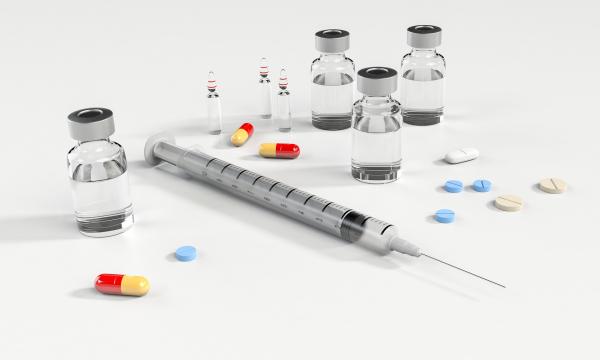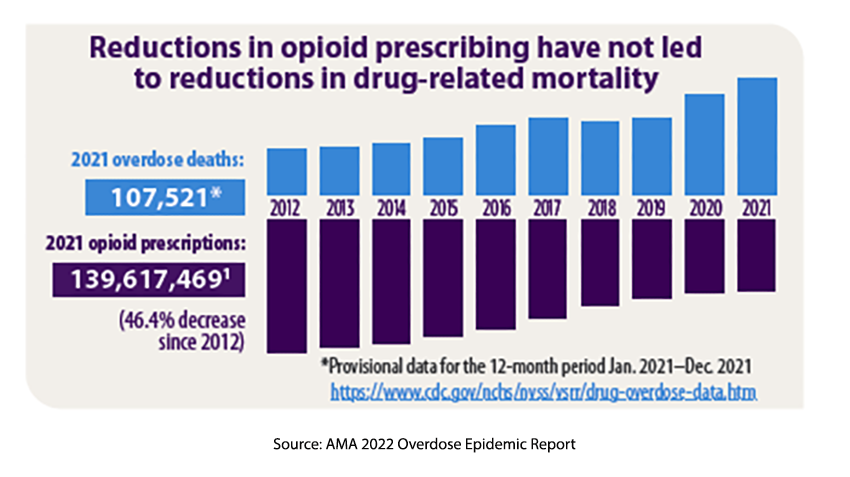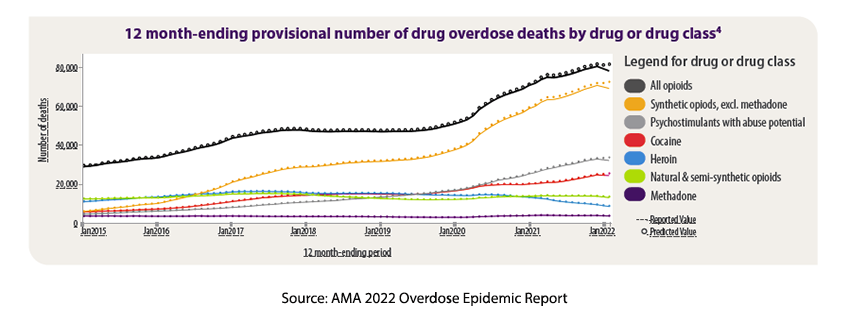Some facts:
- Over the past ten years, opioid prescribing has been reduced “in every state—by nearly 50% nationally.”
- Queries of state-mandated drug monitoring programs by physicians, helping to identify patients “shopping” for willing providers of opioids, exceeded 1.1 billion in 2021.
- These changes to physician prescribing habits result from legislation at the state level, restricting the prescription of opioids based largely on flawed CDC guidelines. Physician compliance with these laws and shifting perception of pain management in the medical community engendered by these regulations also play a role.
Despite all of this, drug overdose deaths have doubled.
Here are the results as captured by CDC data:
Despite a nearly 50% reduction in legitimate opioid prescribing since 2015, we have experienced a 204% increase in opioid overdose deaths.
“Despite these positive efforts, drug-related overdose and death continue to increase, primarily due to illicitly manufactured fentanyl and fentanyl analogs.”
My colleague, Dr. Bloom, offered some help in understanding this graph.
"Synthetic opioids excluding methadone" is a foolish and misleading term. It means illicit fentanyl and analogs
"natural and semisynthetic opioids" is also confusing. It means legal prescriptions like oxycodone. Note that the contribution of these drugs to the overall problem is minor and has been stable for a decade despite the big drop in prescribing.
Let me ask you this question: If you seek advice from a physician and your problem got twice as bad when you followed their advice, would you be inclined to return to them for other health concerns? I think not. Yet we allow our state legislators, predominantly business people and attorneys, to make laws regulating the day-to-day practice of medicine. While often attributed to Einstein, it bears repeating. “Insanity is doing the same thing over and over and expecting different results.”
Source: AMA 2022 Overdose Epidemic Report






